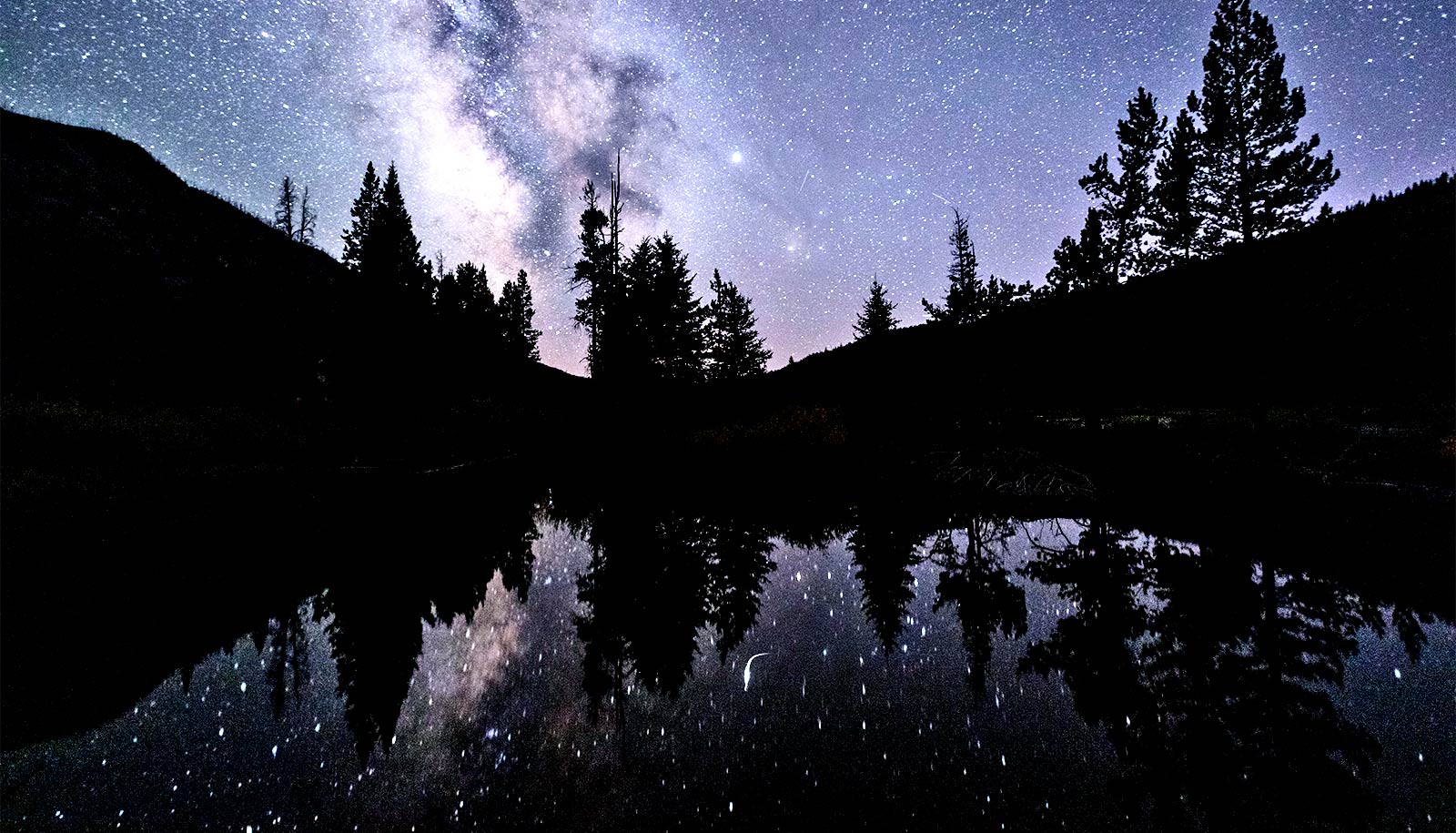Space urgently needs special legal protection similar to that given to land, sea, and atmosphere to protect its fragile environment, scientists argue in a new paper.
The scientific, economic, and cultural benefits of space should be considered against the damaging environmental impacts an influx of space debris—roughly 60 miles above Earth’s surface—pose, fueled by the rapid growth of so-called satellite mega-constellations.
In the paper in Nature Astronomy, the authors assert that space is an important environment to preserve on behalf of professional astronomers, amateur stargazers, and Indigenous peoples.
“We need all hands on deck to address the rapidly changing satellite situation if we can hope to co-create a future with dark and quiet skies for everyone,” says coauthor Meredith Rawls, a research scientist with the Vera C. Rubin Observatory and the University of Washington’s Data Intensive Research in Astrophysics and Cosmology Institute (DiRAC Institute).
The team, led by Andy Lawrence, a professor at the University of Edinburgh’s Institute for Astronomy, reports that the installation of large clusters of hardware in Earth orbit—some consisting of tens of thousands of satellites to deliver broadband to Earth—are congesting space. In addition, rocket launches are polluting the atmosphere and pieces of broken satellites, which race at high speed through orbital space, threaten working satellites in their path. Streaks from satellite flares also cause light pollution, which increasingly disrupts research.
Scientists predict the Chile-based Rubin Observatory, which aims to carry out a 10-year astrophysical survey, will be badly affected, for example.
“Rubin Observatory will be one of the most severely impacted astronomy facilities by large numbers of bright satellites due to its large mirror and wide field of view—the same characteristics that make it such a remarkable engine for discovery,” says Rawls. “I care a lot about how satellite streaks affect science, but the case for dark and quiet skies is much larger than that.”
Addressing these issues will require a holistic approach that treats orbital space as part of the environment and worthy of environmental protection at both national and international levels, the authors say. They urge policymakers to consider the environmental impacts of all aspects of satellite constellations—including their launch, operation, and de-orbit—and to work collaboratively to create a shared, ethical, sustainable approach to space.
“We are standing on a watershed in history,” says Lawrence. “We can cheaply launch huge numbers of satellites and use them to the benefit of life on Earth—but this comes at a cost. As well as damaging stargazing, the space industry may be shooting itself in the foot.”
Rawls has also been involved in efforts to protect and preserve the night sky through the recently established International Astronomical Union Centre for the Protection of the Dark and Quiet Skies from Satellite Constellation Interference. The center aims to bring together sky-observer stakeholders to collaborate on quantifying, mitigating, and disseminating the impacts of satellites.
The new article stems in part from a legal case related to how the US government licenses and authorizes commercial space launches. An amicus brief—filed on behalf of Lawrence with input from Rawls and coauthor Moriba Jah, associate professor of aerospace engineering and engineering mechanics at the University of Texas at Austin—argues that US environmental regulations should apply to the licensing of space launches. The case, which could set a precedent in the growing campaign for “space environmentalism,” is currently before the US Court of Appeals for the District of Columbia Circuit.
“We believe that all things are interconnected and that we must embrace stewardship as if our lives depended on it,” says Jah. “Traditional ecological knowledge holds a key to solving this wicked problem.”
Jah recently cofounded the startup Privateer Space together with Apple cofounder Steve Wozniak and Alex Fielding, CEO of Ripcord. Privateer Space plans to take a novel approach to mapping the objects in orbit accurately, in nearly real-time, to enable the sustainable use of space by a growing number of operators.
“The largest challenge we have is in recruiting empathy and compassion toward solving these environmental crises,” says Jah. “If we can find innovative ways to enable the general public to project themselves into this dire condition, and feel concern to address it, the Earth, and all of the lives she sustains, wins.”
Additional coauthors are from the University of British Columbia; the Square Kilometre Array Observatory, based in the UK; the Jodrell Bank Observatory at the University of Manchester; the Max Planck Institute for Radio Astronomy in Germany; the University of Regina in Canada; Smith College; the Harvard-Smithsonian Center for Astrophysics; and the European Space Agency.
Source: University of Washington


